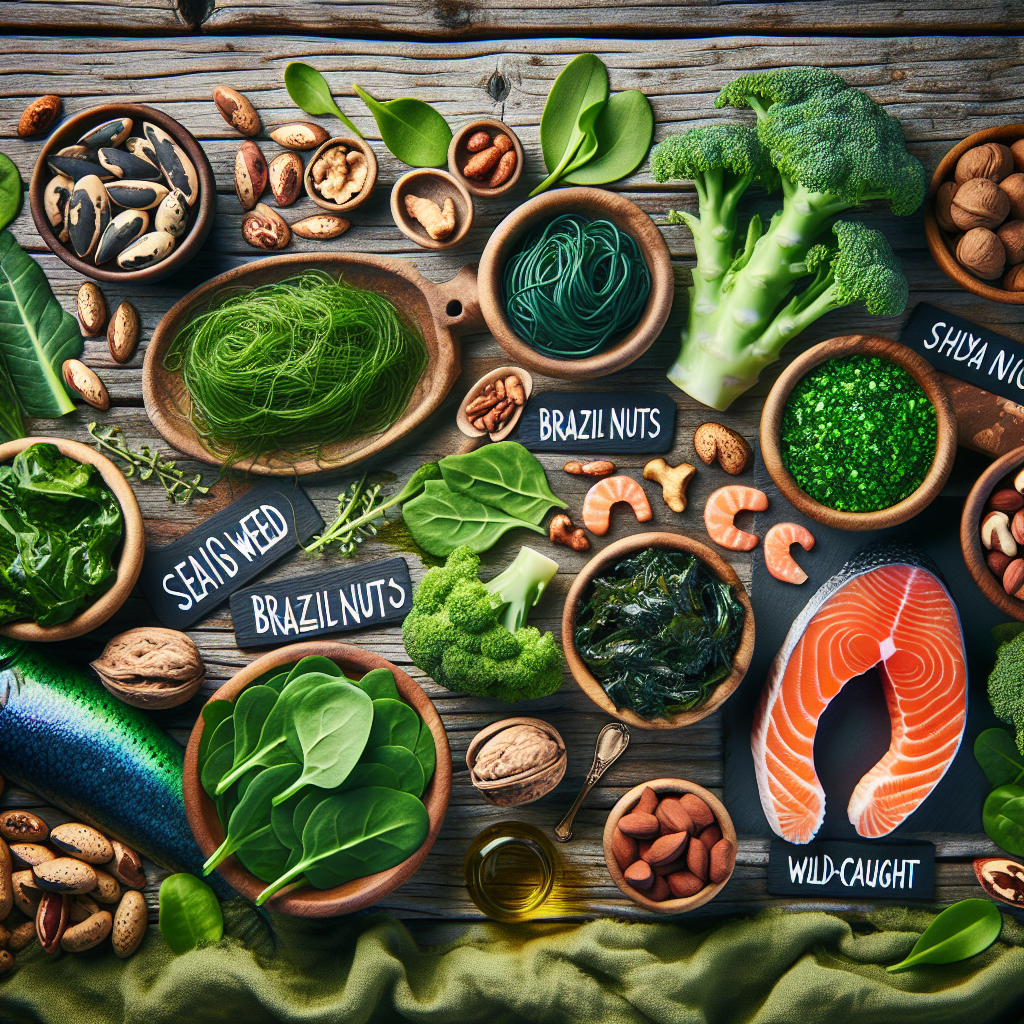The thyroid gland plays a crucial role in regulating metabolism, energy levels, and overall well-being. Supporting thyroid function through a nutrient-rich, organic diet can help maintain hormonal balance and prevent deficiencies that may lead to hypothyroidism or hyperthyroidism. Here are the best organic foods to naturally boost thyroid health.
Iodine-Rich Organic Foods for Thyroid Support
Iodine is an essential mineral required for the production of thyroid hormones. A deficiency can lead to an underactive thyroid (hypothyroidism). Incorporating organic, iodine-rich foods helps ensure optimal thyroid function.
1. Seaweed and Sea Vegetables
Organic seaweed is one of the richest natural sources of iodine. Varieties like kelp, nori, dulse, and wakame provide ample amounts of this vital nutrient. Just one gram of dried kelp can supply more than the daily recommended intake of iodine.
- Kelp – Contains up to 2,000 mcg of iodine per serving.
- Nori – Commonly used in sushi, rich in iodine and antioxidants.
- Dulse – A red seaweed with a slightly salty taste, great in salads.
2. Organic Dairy Products
Grass-fed organic dairy products like milk, yogurt, and cheese provide iodine along with other thyroid-supporting nutrients such as selenium and vitamin D.
- Organic Milk – Contains about 56 mcg of iodine per cup.
- Grass-Fed Yogurt – Rich in probiotics and iodine.
- Organic Cheese – Especially cheddar and mozzarella, provide good iodine levels.
Selenium-Boosting Foods for Thyroid Hormone Conversion
Selenium is vital for converting inactive thyroid hormone (T4) into its active form (T3). These organic foods are excellent sources:
1. Brazil Nuts
Just one or two organic Brazil nuts a day can meet your selenium needs. They also contain antioxidants that protect the thyroid from oxidative stress.
2. Organic Eggs
Pasture-raised organic eggs provide selenium, iodine, and high-quality protein, making them a thyroid superfood.
3. Organic Chicken and Turkey
Grass-fed and organic poultry contains selenium and zinc, which support thyroid hormone production.
Zinc-Containing Foods for Thyroid Hormone Synthesis
Zinc plays a role in thyroid hormone production and helps regulate TSH (thyroid-stimulating hormone).
1. Organic Pumpkin Seeds
A handful of organic pumpkin seeds provides a significant amount of zinc, along with magnesium and healthy fats.
2. Organic Legumes
Lentils, chickpeas, and black beans are good plant-based sources of zinc and fiber.
3. Grass-Fed Beef
Organic, grass-fed beef is rich in zinc, iron, and selenium—essential nutrients for thyroid function.
Anti-Inflammatory Foods to Support Thyroid Health
Chronic inflammation can impair thyroid function. Incorporating these anti-inflammatory organic foods helps protect thyroid health.
1. Wild-Caught Fatty Fish
Organic salmon, mackerel, and sardines are rich in omega-3 fatty acids, which reduce inflammation and support hormone balance.
2. Organic Berries
Blueberries, strawberries, and raspberries are packed with antioxidants that combat oxidative stress in the thyroid.
3. Organic Leafy Greens
Spinach, kale, and Swiss chard provide magnesium, iron, and vitamins A and C—key nutrients for thyroid function.
Foods to Avoid for Thyroid Health
Some foods can interfere with thyroid function and should be consumed in moderation or avoided, especially if you have thyroid issues.
- Soy Products – Soy contains goitrogens, which may inhibit thyroid hormone production.
- Gluten – May trigger autoimmune responses in those with Hashimoto’s thyroiditis.
- Processed Foods – Often contain additives and low-quality oils that promote inflammation.
Final Thoughts
A diet rich in organic, nutrient-dense foods can significantly support thyroid health. Focus on iodine-rich seaweed, selenium-packed nuts and seeds, zinc-containing legumes and meats, and anti-inflammatory fatty fish and leafy greens. By choosing organic, you minimize exposure to pesticides and synthetic additives that may disrupt thyroid function.
